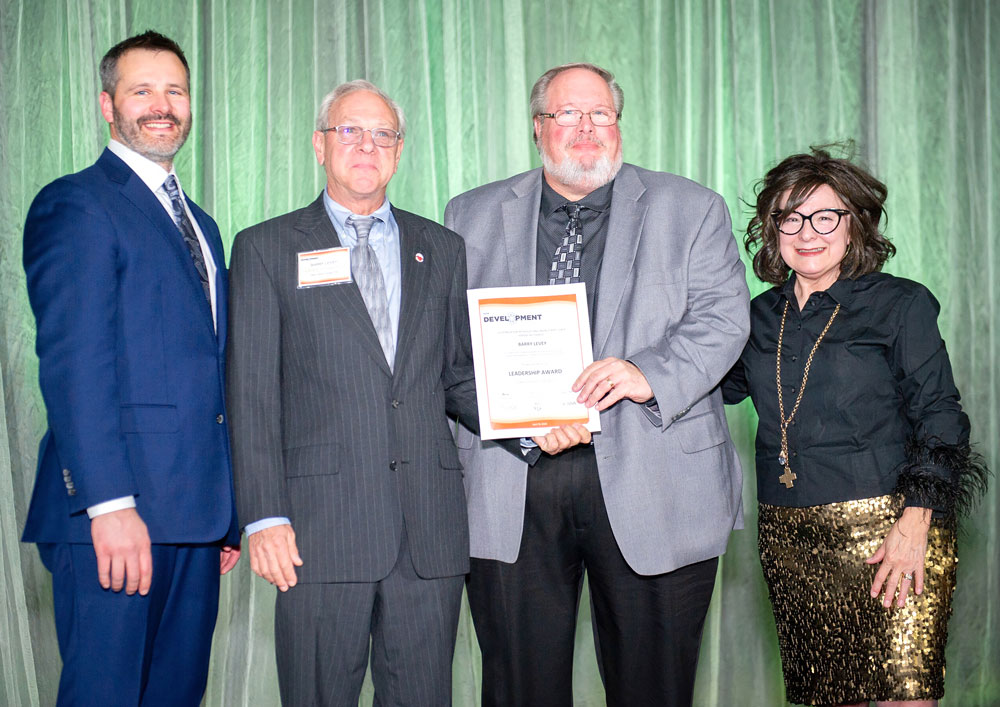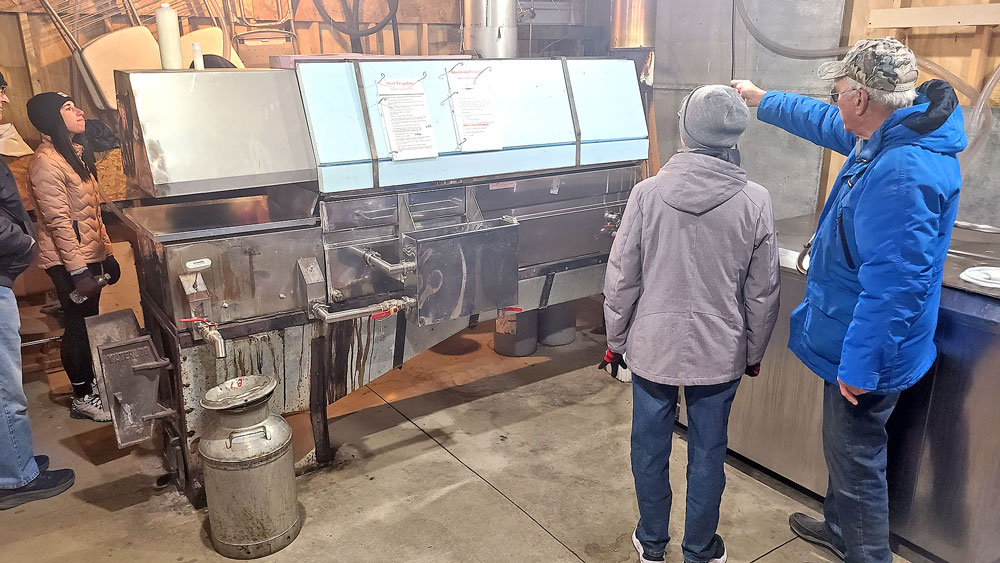Bennet makes the case for his candidacy
By Bob Steenson, bsteenson@charlescitypress.com
He won’t be on the debate stage tonight, but Sen. Michael Bennet said that won’t stop him from trying to convince caucus and primary voters that he is the best choice to be the Democratic candidate for president.
Bennet stopped for an interview at the Press office Monday morning while on a swing through the area. The U.S. senator from Colorado touched on a number of issues that he said are key to addressing “the worst income inequality that we’ve had in a hundred years,” and made his case for why he’s the one who can address those problems.

Bennet won’t be among the 12 candidates in the Democratic presidential debate tonight (Tuesday) from Columbus, Ohio, and he didn’t make the cut for the last debate.
“First, I think the mechanics of our own party are a disaster,” he said, referring to the way the Democratic National Committee selects who will participate in the debate, based on a polling or fundraising threshold.
“I think the Democratic Party should not be nationalizing this election prematurely,” he said.
Bennett, who has experience in business turning around companies and who was the superintendent of the Denver Public School System, said he is the only candidate who has won races for two national offices in a purple state.
After being appointed U.S. senator in 2009 to fill a vacancy, he went on to win election in 2010 and then was re-elected in 2016, winning many Colorado districts that also went for President Donald Trump that year.
“I’ve been in the Senate for 10 years, which is not so long that I’ve forgotten where I come from, but it’s long enough to figure out why the place doesn’t work and what we need to do to fix it and move the country forward,” he told the Press.
“I believe if we spend the next 10 years playing the same politics that we’ve spent the last 10 years, … we’re going to be the first generation of Americans to leave less opportunity, not more, to our kids and our grandkids,” he said.
He said the issues he has heard the most about in Iowa are the same ones he has heard for years while holding town hall meetings in Colorado.
Even though people are working very hard, they can’t afford some combination of housing, health care, early childhood education or higher education.
“That’s true in urban areas and it’s true in rural areas,” he said.
“I believe that’s a reflection of an economy that for 50 years has benefitted the wealthiest people in America, but hasn’t worked terribly well for 90% of Americans who really can’t afford a middle class life anymore, even with two people working, just because wages and salaries have been flat and the cost of everything that’s critical to living a middle class life has gone through the roof,” he said.
His proposals to deal with that focus mainly on changing the tax code to work for people rather than against them, he said.
“Since 2001, we have cut taxes by $5 trillion and almost all the benefits have gone to the wealthiest people. And, by the way, we borrowed all the money from China to do that. We didn’t pay for any of it,” he said.
“I have proposed a very substantial increase in the Earned Income Tax Credit and the Child Tax Credit that would make work pay again in this country and reduce childhood poverty in this country by 40%. We could do that in one year,” Bennet said.
“I think those are the kinds of proposals that cannot only change people’s lives in this country, and give people the opportunity to be active consumers again, be able to actually buy stuff that’s going to drive economic growth in the country again, but it’s different from what other people are proposing in this race,” he said. “And I think it has the potential to unify Democrats and Republicans.”
Part of the problem of income disparity is being reinforced by the country’s education system, he said, “rather than liberating people from it.”
“There was a time when education was the wind at our back, in the middle of the 20th century. I think it can be again, but it’s not going to be that if we don’t have a 21st century education system that we actually invest in with a focus on how we attract and retain teachers in this country,” Bennet said.
“I think in the end a society is judged by how we treat our children, and if I’m president I’m really going to bring a focus to that. Not because we should be deciding education questions in Washington. As a former school superintendent I’m the last person who believes that.
“But I do believe we need a president to challenge us to figure out how we’re going to develop a 21st century education for kids, because the one that we’re operating now is not going to get us to where we need to be.”
Bennet is on the Senate agriculture committee and the subcommittee that deals with commodities and trade.
He said a Bennet administration would spend “every day” trying to open markets for American farmers, “rather than putting the farmers and ranchers in this country in the crosshairs of not just our enemies but our trading partners as well.”
Bennet said President Trump was right to call out China for its trade practices, but the way he did it hurt Americans.
“When commodity prices are as low as they are, when we’ve had the kind of weather that we’ve had in Iowa and Colorado that’s made it unpredictable for farmers, the last thing we need to do is be in the middle of a trade war,” he said.
“We’ll have to see what ends up happening with China, but this was a problem of the president’s own making, and it was a huge tax on American farmers and ranchers and workers. I think that was a huge mistake,” he said.
Much of his agenda focuses on building opportunities in rural America, he said.
Bennet said the country has to find ways to invest in and diversify the rural economy and make sure that people have the opportunity to build businesses and grow and stay in rural America.
Part of that is included in what he said is a huge housing problem in rural America, both in availability and affordability, and a transportation problem that has seen too little investment in infrastructure.
He would change the tax code to increase incentives for lower and middle income persons to be able to afford a down payment and mortgage payments, and pay for it by taking away some of the mortgage deductibility for wealthy people “who don’t need it, or only need it to buy a bigger house.”
He would also fully fund the housing voucher program, he said.
“Only 25% of people who are eligible for housing vouchers get them, because we only fund 25% of them. I propose to fully fund that program in the same way, by changing the way the tax works,” he said.
Bennet says there needs to be a fundamental change in politics from the way it is now, where a law can be passed, then two years later when a different party is elected the law can be changed, then two years later changed back again.
He gave the example of efforts to fight climate change.
“If you care about climate change, you can’t fix climate change two years at a time. It’s impossible,” he said. “So if the democracy is going to work and come up with a durable solution on climate we need one that will last a generation, and that’s going to require us to have a different set of politics.
“That’s why my climate plan, for example, explicitly contends with the idea that we ought to figure out how to sequester carbon in the working lands of this country so we can actually pay farmers and ranchers to sequester that carbon, which is a way of building a constituency for climate that right now we don’t have, that can endure.
“Our kids need us to act urgently on climate change, but they also need us to create a durable solution,” he said. “To be honest, that’s one of the things that I think very few people in this race understand about our political system.”









Social Share